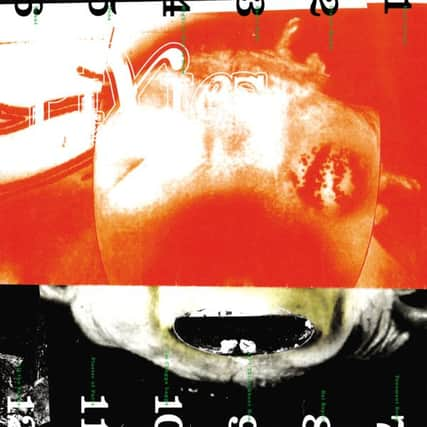Albums round up: Head Carrier by Pixies; Here by Teenage Fanclub; Clinging to a Dream by Silver Apples; Pubic Intellectual: An Anthology 1986-2016 by Momus; Jane and Barton by Jane and Barton


With newish bass player Paz Lenchantin now firmly integrated into the ranks, it seems one of the most influential bands of the last 30 years have finally their sure footed songwriting.
Classic Masher is unashamedly poppy while Baal’s Back has a high decibel brutality worthy of AC/DC. Might As Well Be Gone recalls the classic chord changes of Monkey Gone To Heaven and on Tenement Song the band revive their quiet-loud formula to good effect.
Advertisement
Hide AdAdvertisement
Hide AdThere’s a valedictory tone to All I Think About Now (“I try to think about tomorrow/But I always think about the past”) as the group doff their caps to former bassist Kim Deal.
There’s one more fearsome burst of energy in Um Chagga Lagga before Head Carrier tails off, but for the most part of this record it’s reassuring to hear Pixies are still digging for fire.
The writer Nick Hornby once described Teenage Fanclub’s song Ain’t That Enough as a “three-minute blast of Byrdsian pop, packed with sunshine and hooks and harmonies and good will”. Throw in some of Big Star’s exhilarating power pop and Orange Juice’s Glaswegian jangle and that could pretty much sum up their wonderfully likable oeuvre, of which Here is very much a continuation.
Guitars chime and harmonies abound while lyrically the band quietly reflect on the onset of middle-age and the inevitability of our own mortality. Throughout it all there’s love and friendship to bind us together, they suggest.
Advertisement
Hide AdAdvertisement
Hide AdHold On urges us to stay true to our dreams while The Darkest Part of the Night offers gentle words of reassurance (“I want to see the sparkle in your eyes”).
Then there’s I’m In Love, as lovely an ode to redemptive power of romance as they’ve written in the last 20 years.
In an uncertain world, we need Teenage Fanclub’s warmth and hopefulness more than ever.
Named after a WB Yeats poem, Silver Apples are an experimental American outfit whose influence can heard in the music of Spacemen 3, Stereolab and Portishead. Their self-titled album from 1967 is said to have caught the ear of John Lennon and without their driving beats and electronic drones, it’s hard to imagine quite how Krautrock might have evolved.
Advertisement
Hide AdAdvertisement
Hide AdSince the death of drummer Danny Taylor, Silver Apples have essentially been a solo vehicle for keyboard player and vocalist Simeon Coxe.
Clinging To a Dream is as wonky and wilful as those familiar with Coxe’s work might expect, with an emphasis on the power of repetition and unusual sonic textures, rather than conventional song structures.
As a reiteration of the 78-year-old’s life’s work it’s an impressive statement.
Marrying the outré to a piquant wit, Nick Currie, aka Momus, became Scotland’s answer to Serge Gainsbourg in the 1980s and 90s.
Advertisement
Hide AdAdvertisement
Hide AdAlbums such as The Poison Boyfriend, Tender Pervert and Don’t Stop The Night cast him in various guises – including Maoist intellectual, vengeful lover, moral philosopher and devilish mischief maker.
Key to his best records was a way with melody that made some of his most pungent observations irresistible. Hairstyle of the Devil could be one of the best songs that the Pet Shop Boys never wrote; the harpsichord-driven Bishonen is both perverse and beautiful; The Complete History of Sexual Jealousy (Parts 17-24) is a lyrical masterclass (“If looks could kill I’d kill the men whose looks would kill you if looks could kill”) over a cracking, New Order-like tune.
If his later work hasn’t quite matched the records that Momus made for El and Creation, there are a few later period gems to be found in this triple CD compilation - notably gorgeous love song Nervous Heartbeat and Currie’s strangely affecting falsetto in Widow Twanky, while he tells the tale of a pantomime dame mourning her ex by dressing as the girl he’s lost.
With Momus little is straightforward but as a questioner of social mores and moral hypocrisy, few artists compare.
Advertisement
Hide AdAdvertisement
Hide AdEdward Barton is one of the great characters of the Manchester music scene – writer of the poem It’s A Fine Day which became first an indie hit, when sung by Jane Lancaster, then a top five smash around the world when covered by 90s dance act Opus III, he’s also credited as co-writer of Kylie Minogue’s Confide in Me, as well as collaborating with Orbital, Paul Oakenfold and Norman Cook.
James took him out as a tour support act and he had his own gallery, Oblong, in Manchester’s famous Affleck’s Palace.
Jane and Barton, his reissued album from 1983, is a nine-track curio which features jazzy piano, a little recorder, some humming and rather shouty You Are Over There.
Its primary attraction remains the sweetly innocent It’s A Fine Day and its closing line “We will have salad”.